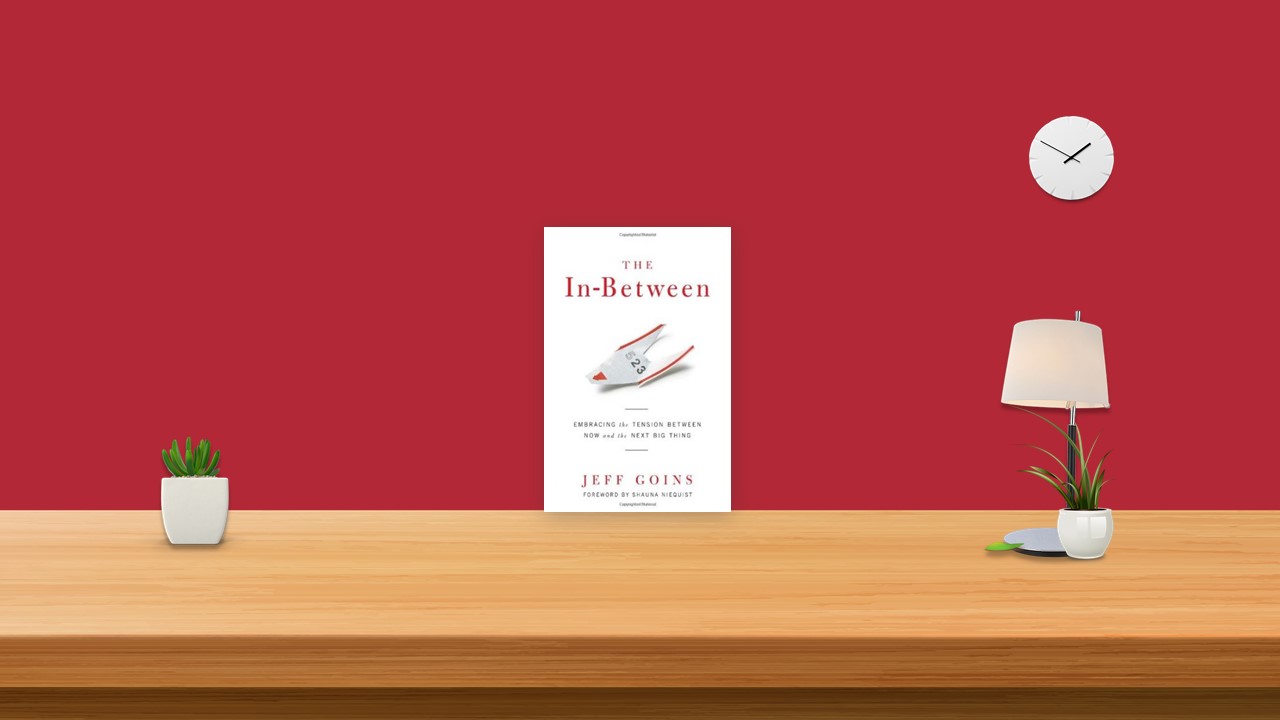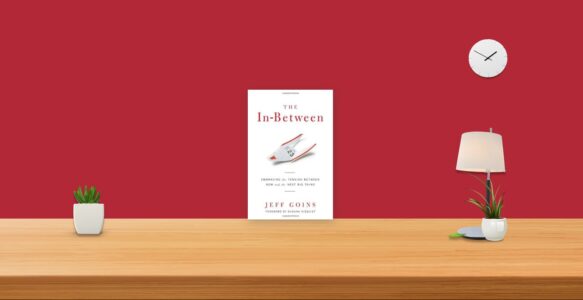How we spend our days, according to Annie Dillard, is how we spend our lives. If that’s true, then we spend most of our lives waiting. Waiting in the checkout line at the grocery store. Waiting to rent a movie. Waiting for the movie to end. Waiting to turn thirty. Waiting for the weekend. Waiting for vacation.
Waiting, waiting, waiting.
Life is an endless series of appointments and phone calls and procrastinated tasks that need to, but sometimes never, get done. It’s a long list of incomplete projects and broken promises that tomorrow will be better. It’s being put on hold and waiting in office lobbies and watching that stupid hourglass rotate again and again on the computer screen. It’s load times and legal processes—long, drawn-out bureaucratic systems that leave me sitting, watching the clock.
Life is one big wait.
Maybe the “good stuff” isn’t ahead of or behind us. Maybe it’s somewhere in between. Right in the midst of this moment, here and now.
Maybe what we call “mundane,” what feels boring and ordinary, is really how we spend our lives. And we have an opportunity to make of it what we will—to resent its lack of adventure or rejoice in its beauty. Perhaps, the abundant life we’ve been seeking has little to do with big events and comes in a subtler form: embracing the pauses in between major beats.
#1 Slow Down
What we fail to notice as we stand in line—as we wait—is that we, ourselves, are changing. We’re growing and adapting to what’s around us, maybe even becoming someone new. At least, we can be. We have the opportunity. Whether we take it or not is up to us.
All this waiting is not an accident; it’s a call to slow down. These delays are meant to point us to a deeper truth: we are not finished. If we relish this reality and embrace the opportunity it holds, we may be able to grasp a depth we’ve not yet reached. We may find this abundant life, after all.
The good life comes like most good things—unexpectedly—in moments that are fading away faster than we realize. These are the moments that take our time but don’t demand our attention. When we miss them, they’re gone. In those times especially, we would do well to slow down and be present, because we won’t get them back
#2 Worth The Wait
Life is full of good things we haven’t yet experienced: finding a spouse, having that first child, taking the long-awaited vacation after years of hard work. Retiring. Graduating. Becoming who we want to be. However, if we’re not careful, we can rush through the process of living on our way toward the next anticipated arrival. We can waste hours and days and years looking at our watch, eager for the following appointment.
Our journey is full of rest stops—park benches and airport terminals—that signal the arrival of things we anticipate. Sometimes, they’re worth the wait; other times, the glory doesn’t shine quite like we’d hoped. Regardless, we need to learn to live in this tension, to appreciate what we have and still hope for. This process isn’t easy; we all know that. But it’s part of being human and it’s what connects us to each other.
We are all waiting for something. And in that wait, there is a necessary tension, even a frustration, that doesn’t fully resolve. This doesn’t mean some things aren’t worth waiting for. It just means we don’t always get what we want, and rarely does it come all at once. Believe it or not, this is a good thing. Just like the delayed gratification between Christmas and Epiphany, we need to understand that the wait sometimes is essential to appreciate the gifts that follow, no matter how much we may resent the process. So through the angst and anticipation, in our longing to have and be more, we need to learn to enjoy this place.
#3 When The Waiting Ends
Sometimes, the hardest times are the ones when the waiting never seems to end. For a friend to finally get clean. For a wayward child to return home. For a healing that never comes. For the future you thought you were going to get.
Unfortunately, life is full of times like these in which there is no resolution. The pain never seems to make sense and the confusion never goes away. These fuzzy times are full of frustration; these, perhaps, are the moments in which our patience is tested the most. But disappointment contains its own clever lessons; it has a surprising moral to teach us, if we will listen. If we will pay attention to the signs.
Sure, we struggle with making sense of this life, of understanding why Dad had to leave when we were so young or why we could never shed those final fifteen pounds. We long for the homecoming that never happens here on earth, and if we’re not careful, we could very well end up regretting and resenting this whole existence.
And we would be missing the point.
The word “disappointment” comes from the idea of literally missing an appointment. It originally was used in the context of meetings and gatherings. If you disappointed someone, it meant you told someone you were going to do something and then didn’t keep your word. So what does it mean if we are disappointed with life? Did life make a promise to us that it didn’t keep?
Perhaps the fact that life doesn’t always turn out the way we’d hoped is a blessing, not a curse—if we have eyes to see it
Conclusion
Although we may now recognize that waiting is a tool that helps us grow, that doesn’t change the fact that the growth is still uncomfortable, sometimes even painful. Nobody likes to be stretched and pulled, but unfortunately, this is the only way we grow.
Most people understand that in order to get from one place to the next, you must travel; you have to move. But few are willing to accept this in areas of personal growth. We can’t stand still; we will stagnate. The irony is that when we think we are standing still, we are actually growing the most. What gets us to our destinations are the pauses, the breaks, the in-between.
So it is with this wonderful experiment we call life. We don’t slow down when we should, so we must be stopped. Diverted. Stalled. And these moments—these huge inconveniences, if we can dare call them that anymore—set us aright, reminding us not only of how far we’ve come but also of the fact that we are not done.
Yet.


